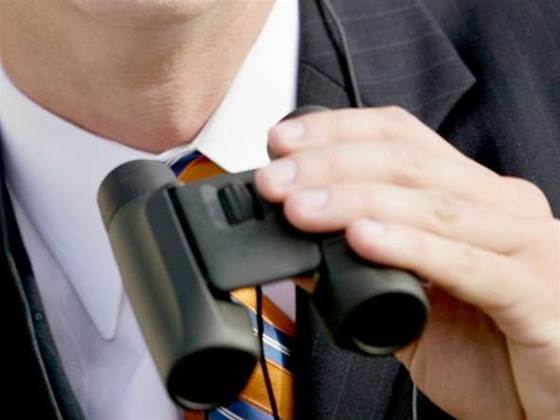Compiled by intellectual property academics, the IP Watchlist released today was produced to counter the annual 301 Report released by the United States Government which criticises the deficiencies it sees in the IP laws of other countries, with a strong bias towards producers of content as opposed to consumers.

The IP Watchlist is a list put together from the consumer's point of view, balancing 60 factors that determine the overall benefits awarded to consumers.
This year's list found that India and South Korea offer consumers the most benefit, the United Kingdom offering the worst.
Domestically, the report finds that the United States actually offers its domestic consumers greater benefit than it expects other governments to show their citizenry.
"The United States applies double standards," said the report's author, Jeremy Malcolm from the London-based consumer advocacy group, Consumers International.
"They have a lot more flexibility in their IP laws for U.S. consumers than for the people in the countries they criticise."
The United States is "actually in company with China and India, countries it criticises year after year " when it comes to how freely its consumers can use content, he says.
In the United States, for example, consumers are granted a 'fair use' exemption which allows them to use copyright information based on four 'balancing tests' - such as whether the use takes away the author's market or whether the use is commercial or non-commercial in nature.
"The United States is coming down so hard on other countries, but domestically it has a balanced system."
Australia let down by free trade agreement
Australian consumers, meanwhile, are given nowhere near as easy aride when it comes to IP law.
Australia was scored halfway down the IP Watchlist (ranked eight of sixteenth nations).
Australia might have fared better, Malcolm said, due to the amendments to the Copyright Act made in 2006 that sensibly gave consumers the right to engage in time-shifting and format-shifting (legitimate copying of purchased CD music to an iPod, for example).
But Australia 's ranking was "let down" by it capitulating to the United States during the Free Trade Agreement negotiations - in which copyright terms were extended to 75 years even though a Senate Parliamentary Committee had recommended against it.
"The terms were extended regardless because they were part of a larger agreement between Australia and the United States," Malcolm said.
Australia was also let down because of its strengthening of the prohibition of technologies that circumvent technological protection mechanisms such as DRM or region-coding.
"In Australia it is against the law to circumvent technological restrictions, even if the use is covered by an exception to copyright law," Malcolm said.
"So for example, if in Australia you are a teacher and you want to copy a five minute segment of an educational documentary for use as a teaching aid, you are entitled to do so under copyright law. But should you bypass the copyright protection on a disc to do that, the practice is illegal."
Some of the United States' biggest success stories owe their success to its lax IP laws in the domestic market, he said.
"You couldn't have a company like Google, for example, being based in Australia," Malcolm said. "Technically speaking, the process of storing a cached version of web pages would be illegal. In fact, what ISPs and corporations do in Australia with proxy servers is actually illegal under Australian copyright law."
The example illustrates that Australia needs to change its archaic laws, he said.
In practice, it is unlikely that these vagaries would ever lead to an ISP being prosecuted.
"But laws shouldn't be on the books if people are infringing them without consequence all the time," he said. "There are not many laws - outside of minor traffic offences - that are breached so often as every day practice."
"It's crazy. We need to assess the limitations we have."


_(33).jpg&h=140&w=231&c=1&s=0)


_(23).jpg&h=140&w=231&c=1&s=0)





 iTnews Benchmark Awards 2026
iTnews Benchmark Awards 2026
 iTnews Executive Retreat - Security Leaders Edition
iTnews Executive Retreat - Security Leaders Edition
 iTnews Cloud Covered Breakfast Summit
iTnews Cloud Covered Breakfast Summit
 The 2026 iAwards
The 2026 iAwards












_(1).jpg&h=140&w=231&c=1&s=0)



